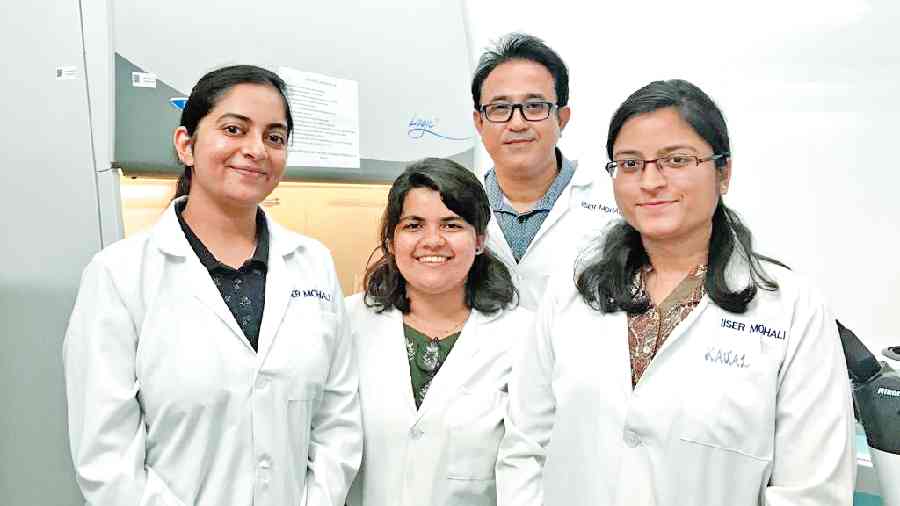Indian biologists have identified variants of three human genes that increase the risk of severe Covid-19, proposing a possible explanation for why only some infected people develop severe disease while others have mild symptoms.
Their study has suggested that people with specific versions of the three genes and their proteins are at greater risk of severe Covid-19 than those with other versions of those genes. The coronavirus uses one of the proteins to enter human cells, a second protein involved in regulating blood pressure, the third is an inflammatory protein.
Since the start of the Covid-19 pandemic in early-2020, multiple studies have shown that about 14 to 15 per cent of infected people develop severe disease, the others have mild symptoms or no symptoms. Less than 5 five per cent become critically ill.
Observations worldwide have also established that patients with comorbidities — underlying chronic illnesses such as high blood pressure, diabetes and lung disease — are at risk of severe disease. But there is no explanation yet for why some young, healthy people also develop severe disease and die.
“It is a question that has baffled doctors and scientists,” said Indranil Banerjee, assistant professor at the cellular virology lab at the Indian Institute of Science Education and Research (IISER) Mohali, who led the new study.
Amid the pandemic’s multiple waves, Banerjee said, much of the public discourse and research efforts have focused on the coronavirus — specifically on genetic mutations in the virus giving rise to variants with the capacity to evade immune responses and drive fresh waves.
“But to understand the capacity of a virus to successfully infect a person and for that infection to cause severe disease, we have to ideally look at both the viral genetic makeup and the infected person’s genetic makeup,” Banerjee said.
Throughout the pandemic, studies across the world have tried to search for associations or connections between specific human genes and the outcome of infections.
Now, Banerjee and IISER Mohali research scholars Kajal Gupta, Gaganpreet Kaur and Tejal Pathak have conducted the most extensive systematic review to date of all such accumulated evidence linking human genes to infection outcomes. Their study appeared in the research journal Gene this week.
They have identified specific versions of three genes that help produce the proteins called ACE2, AGTR1 and
TNF-alpha that appear to raise the risk of severe disease. Their analysis is based on pooling data from multiple studies involving a total of 6,702 Covid-19 patients who had severe disease and 8,640 infected people who had mild symptoms.
The ACE2 protein serves as the gateway molecule that the coronavirus uses to infect human cells, while AGTR1 plays a role in blood pressure, and TNF-alpha is a protein that plays a role in inducing fever and inflammation.
“This is an important and timely study that synthesises all available evidence for the genetic factors for susceptibility to severe Covid-19,” said Nidhan Biswas, associate professor at the National Institute of Biomedical Genomics, Kalyani, who was not part of the IISER study.
The mechanisms through which specific variants of these three genes and proteins translate into severe disease remain unclear, Banerjee said.
The researchers say future studies to understand these mechanisms could also point to novel treatment strategies to block severe disease.










